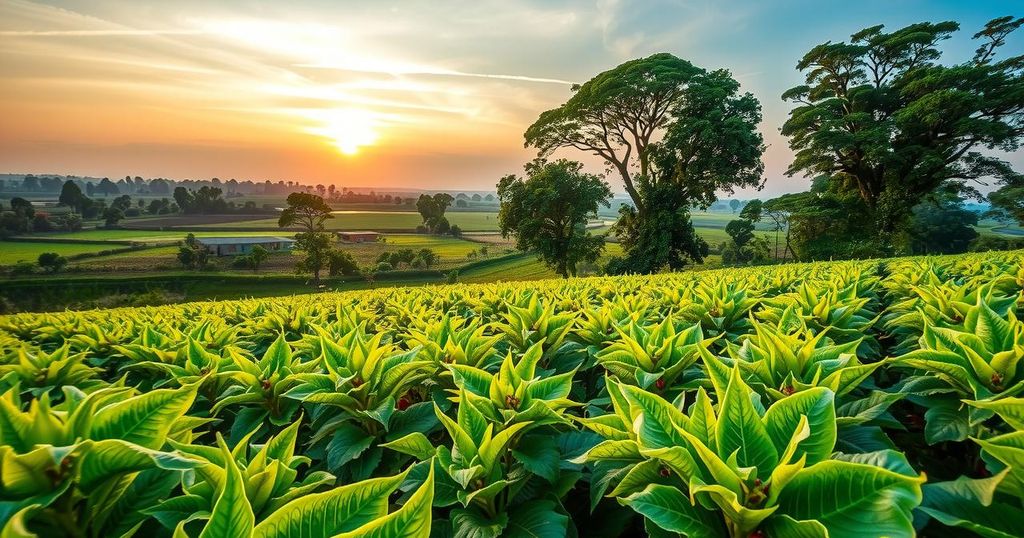Farmers in Malawi are adopting a new fertilization method using organic waste from black soldier flies to combat declining crop yields due to rising costs and environmental challenges. This initiative, spearheaded by Mzuzu University researchers, trains local farmers in sustainable practices, culminating in a potential boost in productivity and soil health for the community.
Farmers in Malawi are utilizing organic fertilizers derived from the waste of black soldier flies to enhance crop yields. This innovative approach was developed by researchers at Mzuzu University in collaboration with the Science Granting Councils Initiative and Malawi’s National Commission for Science and Technology to tackle soil degradation and rising costs associated with chemical fertilizers. The project includes training farmers to produce this sustainable fertilizer themselves.
Fanny Ndhlovu, a farmer from Mzimba District, expressed optimism as she observed the recovery of her banana crops following the implementation of this fertilizer. For years, these farmers have seen their yields decline significantly due to various challenges, including expensive chemical fertilizers and adverse weather conditions. “Honestly, we have been helpless about it until now,” Ndhlovu stated, referring to the newfound solution.
The black soldier fly (BSF) waste, known as frass, is mixed with biochar made from rice husk and coffee grounds to create the fertilizer. The BSF frass is nutrient-rich, containing proteins and essential minerals, and undergoes rigorous laboratory analysis before being packaged for use. Researchers aim to present a cost-effective, environmentally friendly alternative to synthetic fertilizers to improve soil health and agricultural productivity.
A report from Mwapata Institute highlights that about 40% of Malawi’s soils are degraded, contributing to a significant loss of staple crops, particularly maize. Currently, the country loses approximately 2.3 million metric tons of maize annually, which is critical to food security. The researchers emphasize the importance of green technologies to enhance food production while minimizing environmental impact.
Farmers trained in the fertilizer production process, like Ndhlovu, are now sharing their knowledge within their communities. While initial investments for BSF farming can be substantial, those who adopt this sustainable practice report improvements in productivity and financial stability. Researchers advocate for further training and awareness to support a broader implementation of this technology.
In addition to crop fertilization, this project contains potential benefits for the livestock sector, as BSF is a cost-effective alternative protein source for animal feed. Given that feed constitutes a significant portion of production costs, this innovation may help alleviate some financial burdens faced by farmers. By adopting BSF technology, both soil health and food security can be substantially addressed.
Researchers are continuing to refine the fertilizer formulation and are also working on developing suitable feed for various livestock development stages. Increasing awareness and support for smallholder farmers will be essential to promote the widespread use of these sustainable organic fertilizers. Observing flourishing crops has rekindled hope among farmers in Ndhlovu’s village, demonstrating the potential impacts of this project.
The utilization of black soldier fly waste as fertilizer in Malawi presents a sustainable and cost-effective solution to enhance crop productivity amidst rising fertilizer costs and environmental degradation. Farmers like Fanny Ndhlovu are regaining hope through innovative agricultural practices that promote soil health and food security. Continuing education and support for farmers will be vital for widespread adoption, ultimately bolstering the livelihoods of many in Malawi.
Original Source: www.scidev.net




